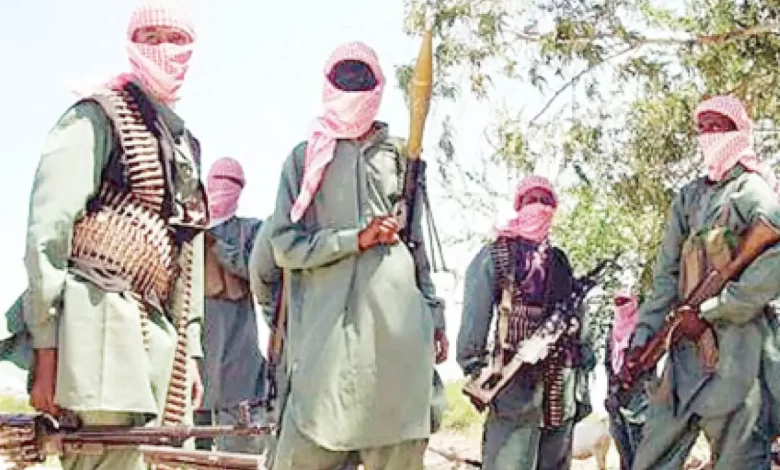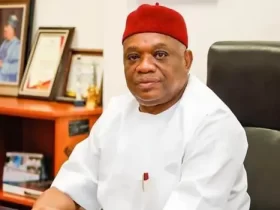
Since Chief Bola Tinubu took office on May 29, 2023, there have been more than 200 recorded violent attacks across all six area councils of the Federal Capital Territory.
Within this period, 87 FCT residents lost their lives, and 176 were kidnapped. These statistics, gathered from Beacon Consulting and various media reports on security issues, underscore a concerning trend.
Notably, since Minister Nyesom Wike assumed office on August 16, 2023, there has been a noticeable surge in violent incidents in the nation’s capital.
The once relatively secure city is now grappling with a rising wave of criminal activities, particularly kidnappings.
Previously considered immune to widespread security challenges, Abuja is now facing an alarming increase in insecurity, causing anxiety among both residents and authorities.
Abuja, ranked 11th in locations with frequent abductions according to a 2020 SB Morgen report, has experienced close to 50 kidnapping cases involving over 200 individuals over the past three years.
The severity of the issue becomes apparent when examining data from January 2021 to June 2023, revealing 40 recorded cases with 236 victims.
Notably, between October and December 2023, there were 13 recorded kidnapping incidents affecting 80 victims, spread across various locations in Abuja, including Gwagwalada, Kuje, Lugbe, Pegi, Abaji, Keti, and Kwali.
The economic impact of this rising insecurity is substantial, with confirmed ransom payments totaling N653.7m between 2021 and 2022.
Residents and businesses in affected areas bear the brunt of these security challenges, affecting daily life and economic activities significantly.
Some of the most notorious incidents in the past seven months include the abduction of six girls on January 5, 2024, in the Bwari Area Council and the recent abduction of the wife and in-law of lawyer Cyril Adikwu on January 18, 2024.
In response to the escalating crisis, Nigerians are calling on the Federal Government and security agencies for a lasting solution.
Inspector-General of Police Olukayode Egbetokun launched the Special Intervention Squad (SIS) in the FCT to curb kidnappings and banditry.
The SIS, tasked with patrolling and securing border communities, has already initiated patrols in the FCT and border towns to address and mitigate violent attacks.
Force Public Relations Officer Olumuyiwa Adejobi highlighted that the SIS deployment is widespread, with special attention to crisis-prone areas and exits out of the city.
Commander Bennett Igwe emphasized that SIS operatives are not limited by borders and will move in and out of the FCT to apprehend criminals.
The nationwide spread of abductions, previously concentrated in the North-East and North-West, indicates a pressing need for immediate and resolute action.
The SIS, beyond immediate intervention, aims to engage in community-oriented policing to restore peace and harmony to the FCT.
Egbetokun said, “As I stand before you today, I am imbued with a profound sense of duty as we confront the crisis of kidnapping and violent crimes presently afflicting our esteemed nation, particularly in and around the Federal Capital Territory.
“The alarming rise in these criminal activities without equivocation, demands immediate and resolute action from us all. It is thus with a determined spirit that I proudly announce the inauguration of the Special Intervention Squad.
READ ALSO: Over 100 Terrorists on Bikes Invade Garam Community Near FCT, Kidnap Residents
“Conceived as an elite unit of the Nigeria Police Force, the SIS composed of specially trained, well equipped and highly mobile police officers and possesses the capacity for rapid intervention and effective containment of significant security breaches, such as those currently threatening the suburb of the FCT and creating panic generally.
“This initiative is not just born out of necessity, but out of foresight, diligent planning and commitment to enhancing the already robust security architecture of our nation’s capital.”
Operatives from the Special Intervention Squad (SIS) conducted a series of visits to villages and hamlets in the Bwari area of Abuja, responding to recent insurgent attacks.
Accompanied by our correspondent, the officers showcased their presence with a display of force, employing Armoured Personnel Carriers, patrol vehicles, buses, and a helicopter during the operation.
In late 2023, the Nigerian Police Force (NPF) announced the deployment of 40,000 specially trained operatives of the Special Intervention Squad, undergoing training.
The initial deployment, covering Katsina and nine other states, including the Federal Capital Territory (FCT), marked the beginning of the SIS’s operational activities.
The proposed commanders, responsible for leading the squad, underwent training in Mexico as part of the strategic planning for the SIS.
The establishment of the SIS was announced by Egbetokun, who assumed office in June. The squad, described as a standby team of specially trained officers, aims to swiftly intervene in large-scale security incidents.
This initiative aligns with the administration’s commitment to combatting the menace of violent crime.
During a recent visit to Owerri, the Imo State capital, the Inspector General (IG) outlined the expansion plans for the SIS. The deployment to the remaining 27 states would follow the 10 pilot states, selected based on a recent assessment of violent crime in all 36 states and the Federal Capital Territory.
Adejobi, the Force spokesperson, emphasized that the SIS would operate differently from the now-defunct Special Anti-Kidnapping Squad, known for human rights abuses. Operatives, drawn from the Police Mobile Force, would not be engaged in escort duties.
The squad’s commanders would operate under the command of commissioners of police in their respective states.
In June, Egbetokun announced the intention to withdraw Police Mobile Force personnel from VIP escort and guard duties.
This decision, discussed during a meeting with squadron leaders and tactical commanders at the Force Headquarters, aimed to restore the police force’s role in the country’s internal security architecture.
Addressing misconceptions about the withdrawal directive, Adejobi clarified that the NPF did not intend to strip legally entitled VIPs of their police escorts.
Such a move was deemed unsafe and counterproductive, emphasizing the commitment to maintaining the security details of VIPs while reshaping the role of the Police Mobile Force.
He said, “Get the message right: We understand that there has been some misunderstanding regarding the directive of IGP Olukayode Egbetokun about withdrawing members of the Police Mobile Force unit from specialised escort and services for VIPs. It’s crucial to provide clarifications to address this.
“First and foremost, let us be clear: at no point did the Force intend to strip VIPs (who are legally and statutorily entitled to Police escorts) of their security details. Doing so would be unsafe and counterproductive. Instead, the objective is to reassign the withdrawn PMF personnel to the recently established Special Intervention Squad.”
Meanwhile, the Minister of the Federal Capital Territory, Nyesom Wike, has instructed the Commissioner of Police in the FCT to establish two additional divisional police stations in the Gwagwalada community.
Furthermore, the minister announced that starting next week, operational vehicles and communication gadgets will be provided to police stations across the six area councils. This initiative aims to bolster the capabilities of security agencies operating in the territory.
Wike shared these developments during the second installment of security town hall meetings held at the Gwagwalada Area Council on Friday.
Moreover, he revealed that some informants of kidnappers had been apprehended and expressed determination to drive criminals out of Gwagwalada, asserting that their time had arrived.
He said, “Security is one thing the President has said he will give Nigerians, because his job is to make sure that he protects lives and property. If we cannot protect lives and property, then our being in government has no meaning. Criminals should get ready, their time has come.
“You all know that if I say something, I will do it. And as I have come here today, if you know you are one of the informants to these criminals, or you are one of the criminals too, your time has come. I and the security agencies will pursue you until you will not come near Gwagwalada again.”
During an earlier address, Abubakar Giri, the Chairman of Gwagwalada Area Council, advocated for the establishment of two police divisions in Dobi and Giri to enhance the ongoing efforts against insecurity.
Also, Muhammadu Magaji, the Agumo of Gwagwalada, urged for the allocation of a new patrol van to support the local police forces.
Meanwhile, Deji Adeyanju, a human rights activist and convener of Concerned Nigerians, attributed the current state of insecurity in the Federal Capital Territory (FCT) to the displacement of individuals, including scavengers, and the demolition of shanties where marginalized people earned their livelihood.
Adeyanju further criticized the FCT minister for the escalating insecurity in Abuja.
He emphasized that the dire circumstances faced by the impoverished, who have been neglected and marginalized, have driven them to engage in criminal activities, such as kidnapping, as a means of survival.
“Rather than adequately relocating these individuals and providing them with alternative means of sustenance, the minister has callously sent them to the streets, exacerbating the desperation and criminal activities in the city,” he said.
(PUNCH)








Leave a Reply